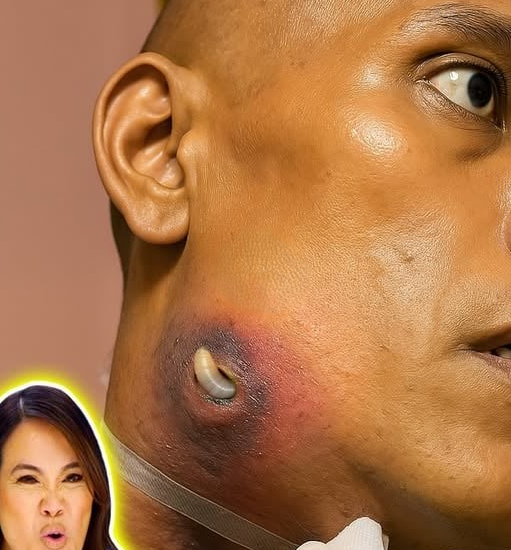Keep your routine simple and consistent:
-
Cleanser: Use a gentle cleanser twice a day. Avoid harsh scrubs.
-
Moisturizer: Even oily skin needs hydration—go for oil-free or non-comedogenic ones.
-
SPF: Daily sunscreen helps prevent scarring and further breakouts.
🔴 2. For Pimples (Inflamed acne)
-
Spot Treatment:
-
Benzoyl peroxide (kills bacteria)
-
Salicylic acid (helps unclog pores)
-
Tea tree oil (natural antibacterial, use diluted)
-
-
Don’t pop: It can cause scarring or make it worse.
⚪ 3. For Whiteheads (Clogged pores that are closed)
-
Use Salicylic Acid: Gently exfoliates inside pores.
-
Retinoids (like adapalene): Helps prevent clogged pores.
-
Clay masks: 1–2 times a week to draw out oil.
⚫ 4. For Blackheads (Clogged pores that are open and oxidized)
-
Exfoliate:
-
BHA (Salicylic acid) works best—it’s oil-soluble and gets into pores.
-
Enzyme or chemical exfoliants are better than scrubs.
-
-
Pore strips: Can remove some blackheads, but results are temporary.
-
Clay masks or charcoal masks help reduce appearance.
🧴 Optional Boosts
-
Niacinamide: Calms inflammation and balances oil.
-
Azelaic acid: Fights acne, redness, and post-acne marks.
-
Exfoliate gently: 2–3x a week if skin allows.
❌ Avoid
-
Over-washing
-
Harsh scrubs
-
Picking/popping
-
Oily or heavy makeup
If it’s really persistent or painful, seeing a dermatologist can make a world of difference. They might suggest prescription creams, antibiotics, or treatments like chemical peels.
🧼 Basic Skincare Routine
A consistent skincare routine is essential for managing acne:
-
Cleanser: Use a gentle, fragrance-free cleanser twice daily to remove excess oil and dirt without irritating the skin.
-
Exfoliation: Incorporate a mild exfoliant containing salicylic acid (BHA) 2–3 times a week to help unclog pores.
-
Moisturizer: Even oily skin needs hydration. Opt for an oil-free, non-comedogenic moisturizer.
-
Sunscreen: Apply a broad-spectrum sunscreen daily to protect against UV damage and prevent post-acne hyperpigmentation.
🔴 Treating Pimples (Inflamed Acne)
Pimples, characterized by red, inflamed bumps, can be treated with:
-
Benzoyl Peroxide: This ingredient kills acne-causing bacteria and helps reduce inflammation. It’s effective for inflammatory acne but can cause dryness and irritation. Start with a lower concentration (2.5%) and gradually increase as tolerated.
-
Topical Retinoids: Retinoids like adapalene promote cell turnover and prevent clogged pores. They can be used in conjunction with benzoyl peroxide for enhanced efficacy.
-
Ice Application: Applying ice wrapped in a cloth for 10–15 minutes can reduce swelling and pain associated with pimples.
⚪ Treating Whiteheads (Closed Comedones)
Whiteheads occur when pores are clogged with oil and dead skin cells. To treat them:
-
Salicylic Acid: A beta-hydroxy acid that penetrates pores to exfoliate and clear blockages.
-
Topical Retinoids: Encourage cell turnover, preventing the formation of new whiteheads.
-
Avoid Picking: Refrain from squeezing whiteheads, as this can lead to scarring and further breakouts.
⚫ Treating Blackheads (Open Comedones)
Blackheads are formed when clogged pores are exposed to air, causing oxidation. To address them:
-
Salicylic Acid: Helps exfoliate the skin and clear out pores.
-
Clay Masks: Ingredients like kaolin or bentonite clay can absorb excess oil and help clear pores.
-
Hydrocolloid Patches: These patches can absorb oil and impurities from blackheads, though they may not be as effective for deep-seated ones.
🔄 Ingredient Pairing and Usage Tips
-
Benzoyl Peroxide and Retinoids: These can be used together but may increase irritation. It’s advisable to use them at different times (e.g., benzoyl peroxide in the morning, retinoid at night) or on alternate days.
-
Salicylic Acid and Vitamin C: These can be used together to improve skin texture and tone, especially for acne-prone skin.
-
Patch Testing: Always perform a patch test when introducing a new product to check for adverse reactions.
📅 When to Consult a Dermatologist
If over-the-counter treatments don’t show improvement within 4–6 weeks, or if acne worsens, consider consulting a dermatologist. They can prescribe stronger medications or recommend treatments like chemical peels or light therapy

Leave a Reply